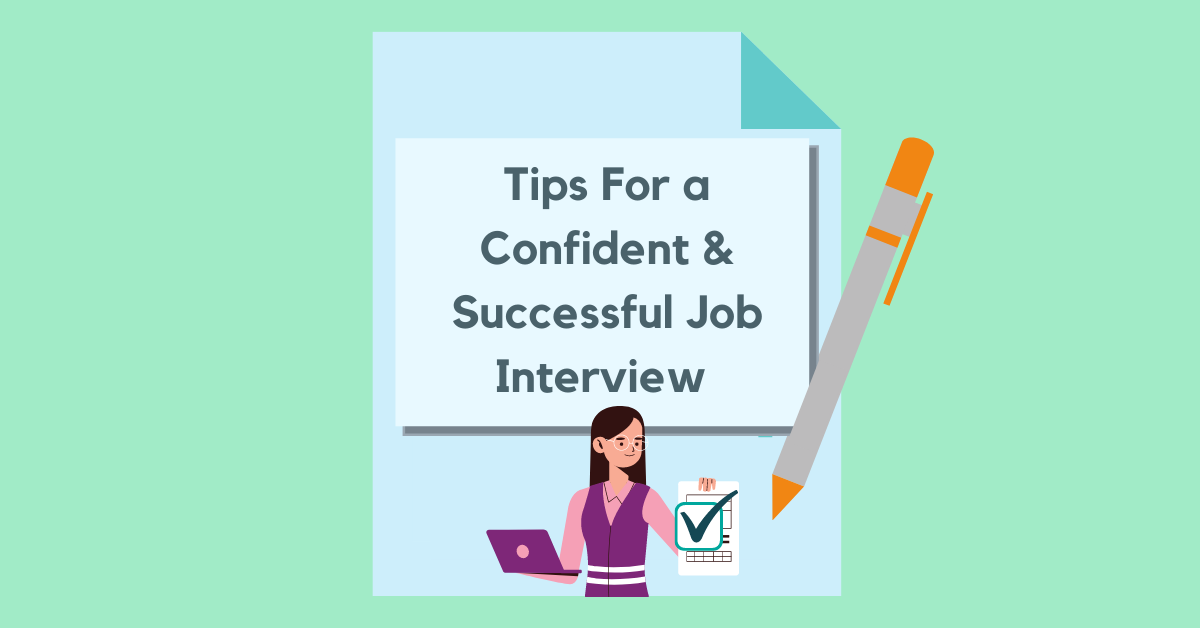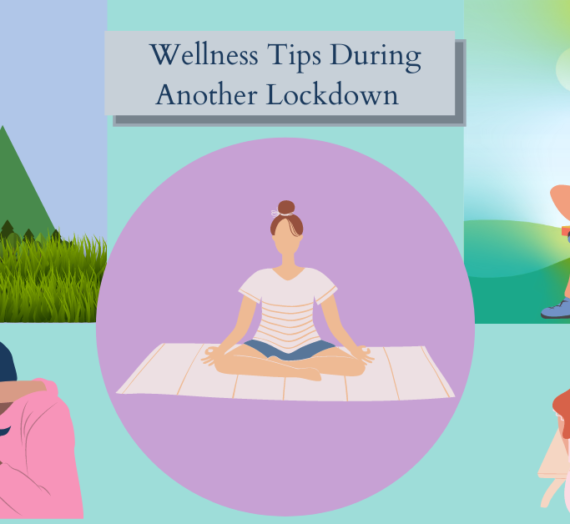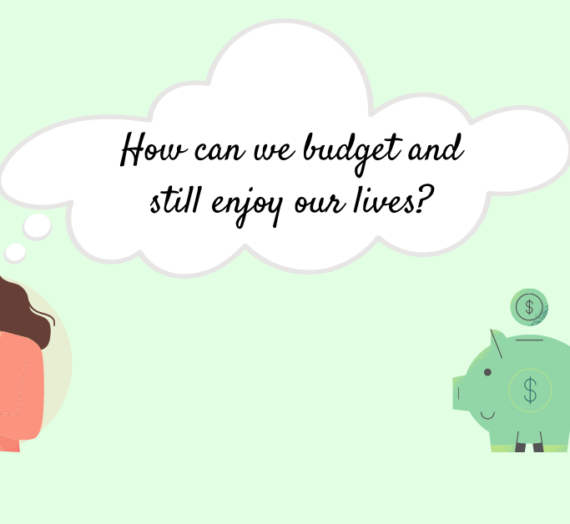You’ve submitted your application, got an interview, but don’t feel confident, or prepared. Maybe you’ve had no prior interview experience, or are letting your nerves get the best of you. Most people have worked part-time jobs before their first ‘big’ job. However, growing up in Ireland, many part-time job interviewers only ask one question, “When can you start?”
Furthermore, people have had to reskill, some have unfortunately lost their jobs due to the pandemic. Put this together with our current lack of human contact, and queue the wave of anxiety. “Where do I even start?”, “What if I mess up?”, “What if I don’t get the job?” We all have these negative thoughts, but we can minimise them greatly with preparation and believing in ourselves.
I’ve picked up a few tips over the years from completing Interview Techniques and Oral Communications exams, as well as attending 7 interviews, where I luckily got the job after each one. Today, I’m going to share my techniques and tips with you. Hopefully, this leaves you feeling confident and prepared before your interview. If you manage to read to the end, (fair play as this blog post is more like a short novel) I’ve included some questions to ask at the end of the interview.
Without further ado, here are my top interview tips.
Interview Preparation Tips
1. Research

The first thing you need to do is research the company you’ve applied to work for. You don’t need to memorise the entire company’s website, but I would advise looking at:
- The company culture- is it a friendly, laid-back, creative place to work? Or, does it focus on efficiency and has a corporate feel? This will give you an insight into the company’s atmosphere.
- The company values- do they value team-building, professional development, or accuracy? Knowing their values allows you to focus on what’s most important to the company.
- Projects they’ve worked on- check their website to see what work they’re currently doing. If you can’t find anything, look through Google or social media. This will give you a better idea of their current projects and will impress them if you’ve gone the extra mile.
- Companies they’ve worked with- try and remember 2 or 3 of their company affiliates that easily stick in your head. Don’t try and remember loads, or you’ll fry your brain. Just try to remember a couple.
Write these headings on a word document or a piece of paper. Make a bullet point list and don’t overcomplicate it. Pick words that are easy to remember and resonate with you. Once you’ve done this, you will have a solid overview of the company. Try to think of reasons why you’d want to work for a company with these attributes.
For example– the company you’ve applied for is extremely professional, values team building & is solutions-focused. You know they’re also working with a global engineering firm. This is relevant to you because, “I love working with other people. I’m naturally extroverted, and thrive off solving problems with others, especially clients.”
So now, not only do you know what the company does and who they are, you know how you would fit into their company culture and values.
Don’t Overcomplicate Your Interview Research
You won’t know everything about the company, no one does at this stage. Don’t spend your time worrying about it. They won’t expect you to know every detail of their recent and future projects. As long as you know the above basic points, you should be off to a great start!
2. Skills from Job Description
Copy and paste the job description into a word document. The position you’ve applied for may still be up on the company page, or check through the account you applied with (Indeed, LinkedIn, etc). Highlight the skills and keywords listed in the job description, delete the rest. You’ll now know exactly what they’re looking for in the interview- base your strengths and skills off these.
Take note of these keywords. Then, think of how you fit the description they’re looking for (without blatantly lying, of course).
3. Prepare Five Experiences

This is the main bulk of what I do for each interview. It really helps maintain consistent talking points, no matter what question arises.
Think of 5 experiences you can use for any answer. The first thing many people say is, “I don’t have 5 experiences.” Yes, you do. I guarantee everyone has 5. Most people probably have more. This will take a little bit of work on your behalf but really reflect on everything you’ve done up until now.
Experience Examples:
- Jobs– Part-time, internships, full time, temporary, freelance, tuition.
- Work Experience– unpaid work experience.
- Voluntary– voluntary work during school, university, charity work, community work.
- Hobbies– sports, singing, dancing, reading, writing. Hobbies take a lot of commitment and hard work, don’t forget about them.
- Personal– babysitting your cousins, your side business, a blog, an Instagram page.
- Societies– maybe you joined a society at university, or have an affiliation with a local group in your community.
These are just a list of suggestions. Really dig deep and have a think. I guarantee you have 5 experiences you could talk about.
Here is an example list:
- Job– part-time job in a restaurant. Skills required: time management, delegation, working under pressure, customer engagement.
- Volunteering at a soup run with SVP- did two soup runs. Skills required: giving back, community-focused, empathy.
- Work experience- first sparked my interest in this field. Skills required: initiative, future-focused, career-driven.
- Babysitting younger cousins- Skills required: leadership, discipline, empathy, responsibility.
- Degree/ University/ School– Skills required: balancing studies with personal life, teamwork, working to deadlines, prioritising tasks, focus.
Learn your best 5 experiences off and think of WHY they’re relevant to this job. Furthermore, refer back to company values/ company culture if you’re stuck on how to elaborate on your experiences. Think of what skills were required during each of these. If you’re stuck for ideas, Indeed has a list of hard and soft skills you can use for inspiration.
4. Positive Mindset
You might be nervous and start to have negative thoughts. These always occur when stepping out of your comfort zone, but that’s okay. Remember, they are only thoughts and do not reflect your ability. A tip I always give is to replace your negative thoughts like so:
- “I don’t have enough time. I’m screwed.” –> “I have limited time, so I’m going to focus now and do all I can.”
- “I’ll come across as weak because I’m nervous.” –> “Being nervous is okay, employers are aware most candidates will be nervous. I can channel this nervousness into enthusiasm.”
- “They will judge me.” –> “The interviewer wants me to do well. Companies want to save their interviewing time and get a good candidate, which can be me. They aren’t here to judge me, but to prompt me and listen to what I have to offer.”
- “I won’t get the job.” –> “I’m going to try my very best and if I don’t get this job, it wasn’t the right one for me. Another opportunity will arise.”
If you can’t replace your negative thoughts in your head, write them down on a piece of paper and follow this process.
5. Practice Makes Perfect
You might want to go over how you’ll word your ‘5 experiences’. Record yourself. See if you need to slow down, change your wording or cut out some parts.
When practising, you can ask someone to interview you. If this is a family member or friend, you will likely:
a) laugh,
b) get annoyed, or
c) both.
They’re your family/ friends, not CEOs. (maybe they are, who am I to make presumptions?) Just because your fake interview went badly with your da who doesn’t even know what role you’re applying for, is not a reflection of how you’ll do during the actual thing. It’s just a practice run. Don’t worry about it.
What to Avoid Before Your Interview
1. Don’t Fixate on Potential Interview Questions

I know this sounds counterintuitive. Should we not look up every possible question and prepare an answer for them? No. This not only wastes your preparation time, but you end up focusing on, “What will they ask me?” as opposed to, “How can I answer confidently?”
You can look up some questions. However, looking up a list of “100 questions an interviewer might ask you” probably won’t help. It will more than likely make you feel even more nervous than you already are. Seeing all the question variations may make you think:
- “There are so many things they could ask me!”
- “What if they ask me something entirely different?”
- “What if I haven’t prepared the exact question they ask?”
Don’t fixate on the possible questions they’ll ask you. Instead, focus on the 5 experiences you’ve prepared and the possible answers you can give to any scenario they throw at you. As a result, your mind shifts from feeling anxious about what they may ask you, or what they’ll think of you, to one of feeling prepared, no matter what the question is.
Truth be told, the actual question doesn’t always matter. It’s how confidently you answer it.
2. Don’t List Off Your Weaknesses
Only choose one weakness. Make sure you turn this ‘weakness’ around to make it not really sound like a weakness. Everyone does it.
Furthermore, what the interviewer does not want to hear, is a list of your worst personal qualities. They absolutely don’t want to hear about the fact you didn’t help your friend Carla when she was a drunk mess last week, cos like, why would you? She’s so annoying and like c’mon learn to handle your drink!
Keep it brief, impersonal and positive.
Example:
“My greatest weakness is the fact that I’m a perfectionist. I like to make sure everything is completed to an exceptional standard. Sometimes I can spend additional time on projects to ensure they are thoroughly checked.” To the employer this comes across as- she completes everything to a high standard, even if she spends a bit too much time on projects.
Pick ‘weaknesses’ that aren’t really weaknesses. Things that can be turned on their head as a positive.
Tips for During Your Interview
- Breathe.
- Smile.
- Listen carefully to the question.
- After they ask a question, visualise your ‘5 life experiences’. Then, you will never be stuck on what to say, as you have already practiced several responses.
- If you need a few seconds to think, take a sip of water, or ask them to repeat the question.
- Try not to panic- if they ask a difficult question, they’re generally wanting to see how well you handle being put on the spot. Try to answer calmly, even if you don’t know the answer exactly.
- Ask a question at the end.
- Tell them you’re looking forward to hearing from them, smile & thank them for their time.
So, the interview is over. But wait, now for the dreaded, “do you’ve any questions for us?” Noooo. This is my interview, why do I have to ask you questions? Fear not. If you’ve made it down this far, here is a list of questions to ask at this stage:
Tips for Asking Interview Questions
- What do you like most about working here?
- How has your company managed the pandemic? What changes have you made to the workplace?
- Are there opportunities for professional development?
- Where do you see the future of the company?
- How would you best describe the company’s employees?
- Do you expect the (insert your field) department to grow within the next 5 years?
- Will your employees continue to work from home on certain days, after the pandemic?
- How have you developed within the company since the beginning of your career?
- Are there any training programmes available to your employees?
- What’s the company’s approach to work-life balance?
Conclusion
This post was a lengthy one. Fair play if you’ve made it this far. Interview preparation isn’t a 10-minute job. It will take some time. If you’re focused, prepared, and have a positive mindset, you’re probably much further ahead of other candidates. Here is a little summary for you to download and keep:

By the end of the interview, you might even be ready to take it to the next level, asking my, ‘Questions to Improve Conversations in 2021‘ andddd you’ve blown any chances you had by asking who your future boss, “What’s the most exotic pet you would like to own? You seem like a parrot kinda man, Francis.”
Just remember, the interviewer wants you to do well. They do not want you to mess up, as much as you might think they’re there to judge you. They aren’t at all. So smile, remember your 5 experiences and if you don’t get it, it wasn’t the right job for you. I hope these interview tips helped you feel more prepared and confident.
Best of luck everyone!
Eilís x




